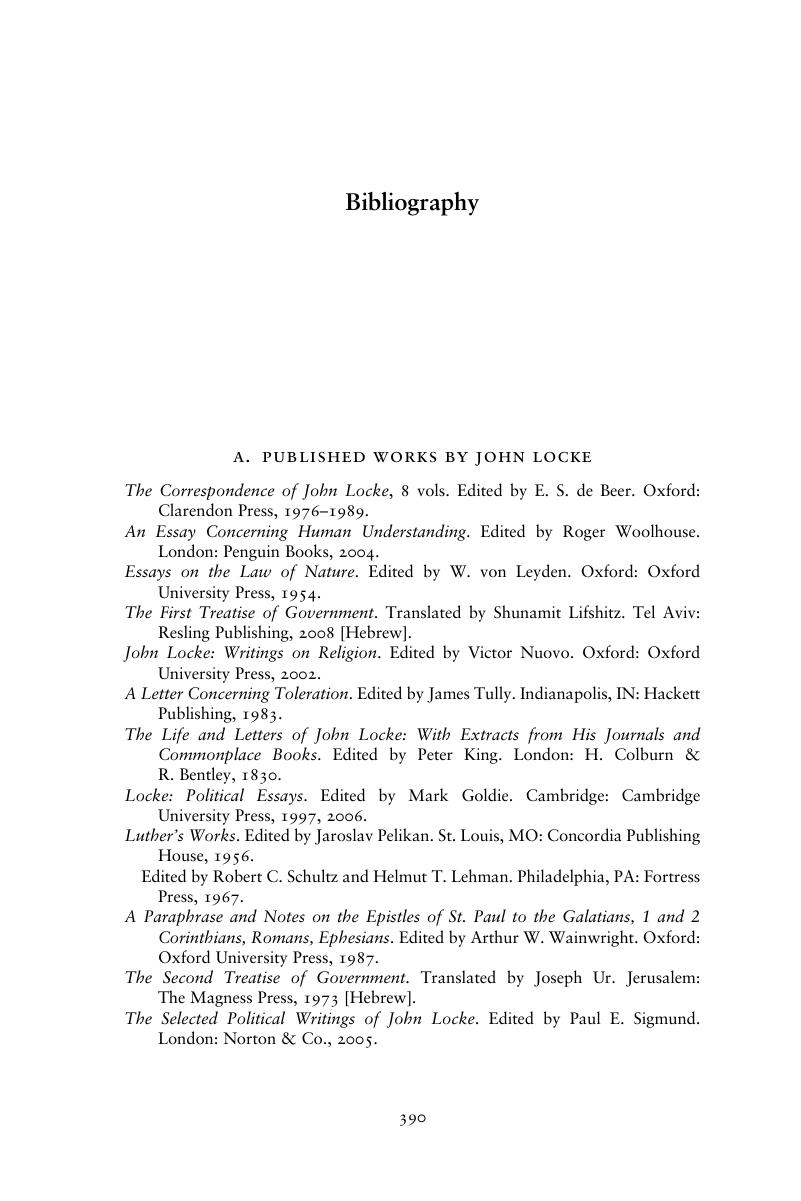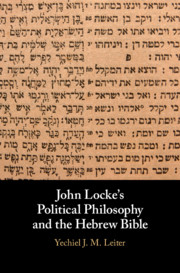Book contents
- John Locke’s Political Philosophy and the Hebrew Bible
- John Locke’s Political Philosophy and the Hebrew Bible
- Copyright page
- Contents
- Preface
- Acknowledgments
- Introduction
- 1 Retrieving the Lost Honor of the First Treatise
- 2 Locke’s Unusual Natural Law
- 3 Equality and Liberty
- 4 Property and Charity
- 5 On Rebellion
- 6 The Fall and the Extent of Human Depravity
- Conclusion
- Bibliography
- Index
- References
Bibliography
Published online by Cambridge University Press: 18 June 2018
- John Locke’s Political Philosophy and the Hebrew Bible
- John Locke’s Political Philosophy and the Hebrew Bible
- Copyright page
- Contents
- Preface
- Acknowledgments
- Introduction
- 1 Retrieving the Lost Honor of the First Treatise
- 2 Locke’s Unusual Natural Law
- 3 Equality and Liberty
- 4 Property and Charity
- 5 On Rebellion
- 6 The Fall and the Extent of Human Depravity
- Conclusion
- Bibliography
- Index
- References
Summary

- Type
- Chapter
- Information
- John Locke's Political Philosophy and the Hebrew Bible , pp. 390 - 414Publisher: Cambridge University PressPrint publication year: 2018



